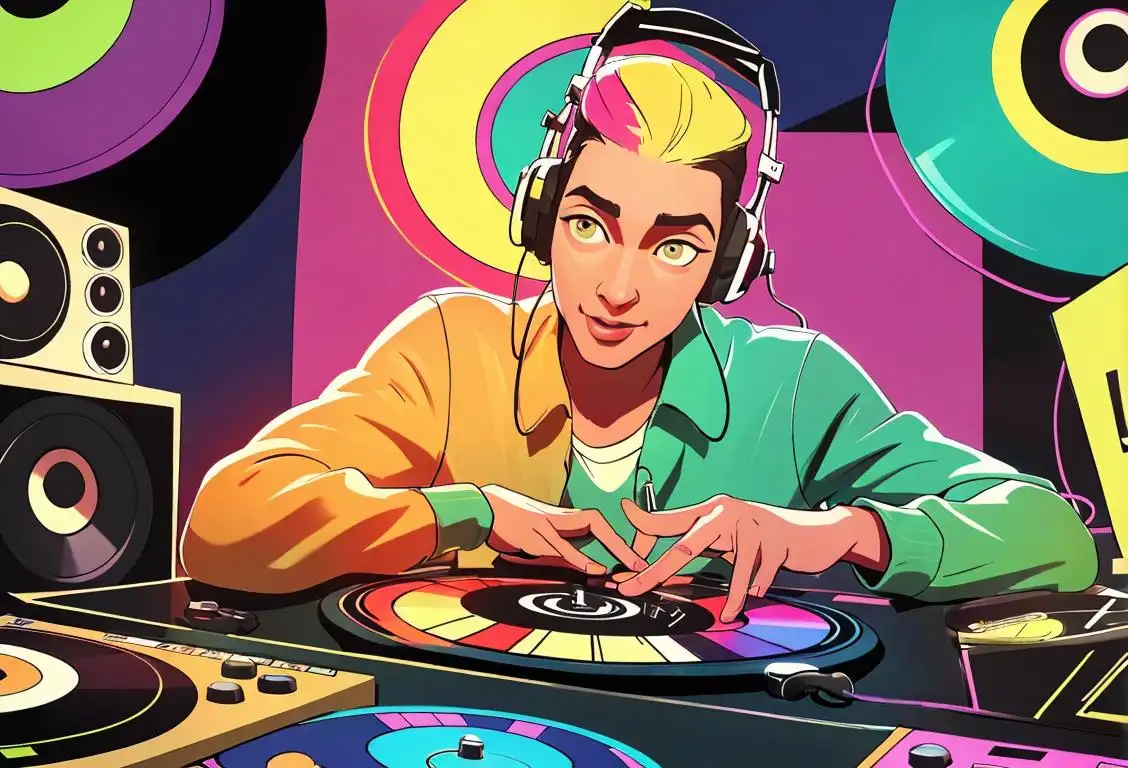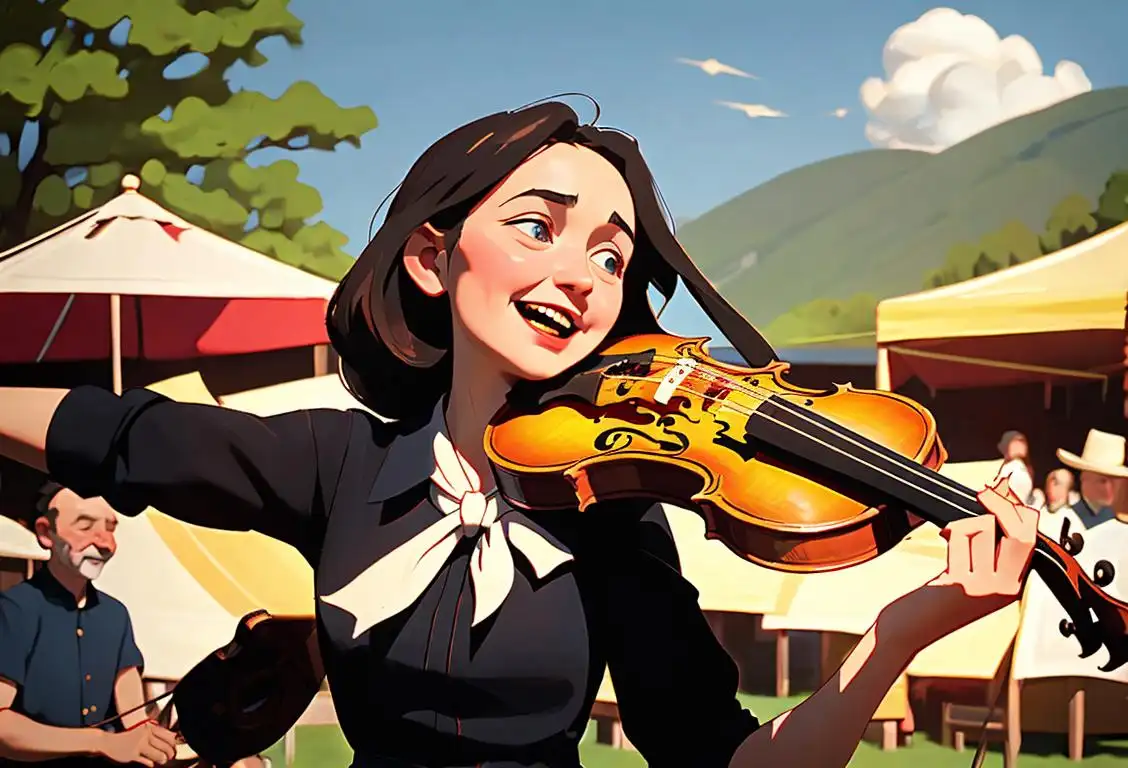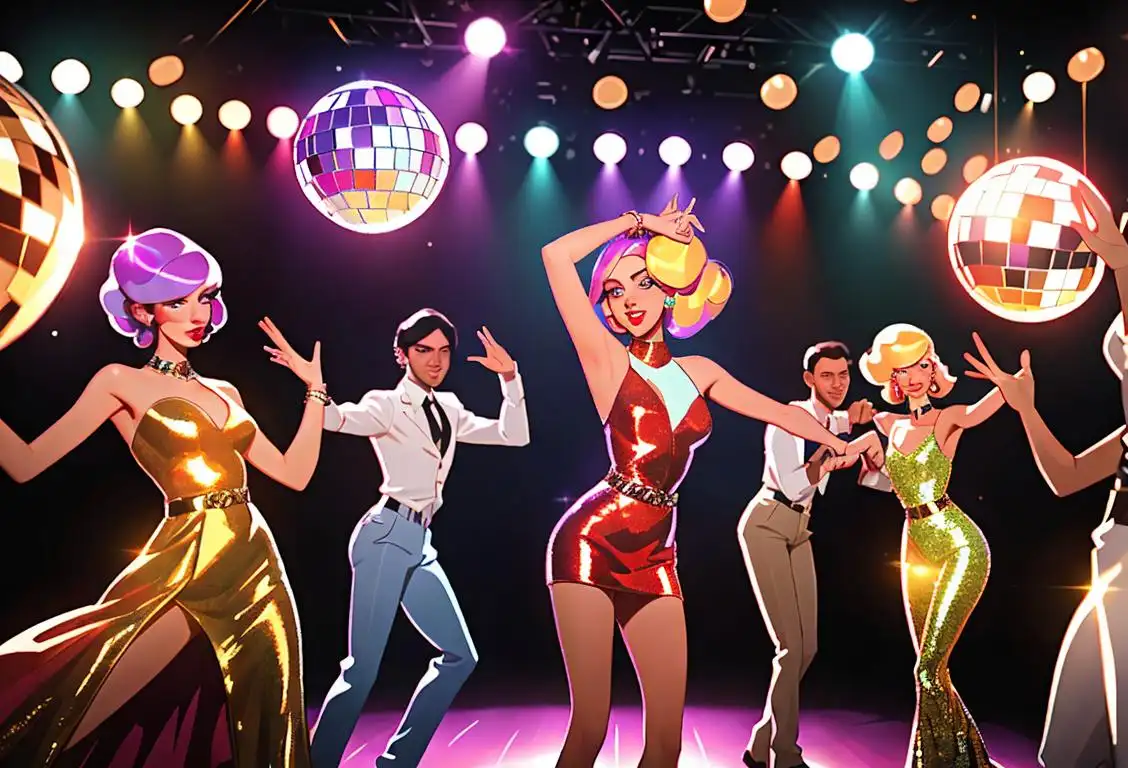National Radio Disc Jockey Day

Hey there, radio lovers! Get ready to groove to the beats and tune in to National Radio Disc Jockey Day! It's time to celebrate the legends behind the mic who keep us tapping our feet and singing along every day. From spinning tracks to delivering hilarious banter, these disc jockeys make our mornings brighter and our long drives more enjoyable. Let's dive into the fascinating world of radio disc jockeys and discover why they deserve this special day of appreciation!
When is Radio Disc Jockey Day?
It's national radio disc jockey day on the 20th January.
The Evolution of Radio Disc Jockeys
Radio disc jockeys, often referred to as DJs, have been a vital part of the broadcasting industry since the early days of radio. Back in the 1930s, DJs primarily acted as program hosts, introducing songs and providing information to the listeners. They were like the friendly neighbors who brought the latest hits straight to your living room.
As radio technology progressed, DJs started experimenting with mixing and scratching records, setting the stage for the birth of the modern disc jockey. The 1960s and 1970s witnessed the rise of legendary DJs like Alan Freed, Wolfman Jack, and Casey Kasem, who revolutionized the way music was presented to the masses. Their distinctive voices, energetic personas, and extensive music knowledge captivated audiences across the nation.
The Influence of Radio Disc Jockeys
Radio disc jockeys have an incredible ability to shape popular culture. Through their on-air charisma and carefully curated playlists, they can introduce listeners to new artists and genres. Many successful musicians owe their breakthrough moments to a radio DJ discovering their talent and sharing it with the world.
Beyond music, radio disc jockeys also play a crucial role in keeping communities informed and engaged. They host talk shows, share local news, and provide a platform for listeners to voice their opinions. Their infectious energy and witty banter make radio shows a delightful companion for people of all ages.
Celebrating National Radio Disc Jockey Day
On National Radio Disc Jockey Day, it's time to shower our favorite DJs with love and appreciation. Whether you're a regular caller, a die-hard fan, or just someone who enjoys turning up the volume while driving, take a moment to show your gratitude.
Send a heartfelt message to your local radio station, expressing your appreciation for the DJs who brighten your day. Tune in to your favorite radio show and let the DJ know they're doing an amazing job. Spread the word on social media using the hashtag #RadioDiscJockeyDay, and share your favorite radio memories with friends and loved ones.
History behind the term 'Radio Disc Jockey'
1906
The Birth of Radio
The term 'radio disc jockey' originated from the birth of radio in the early 20th century. In 1906, Reginald Fessenden, a Canadian inventor, made the first broadcast of music and voice over the airwaves. This marked the beginning of a new era in entertainment and communication.
1906
Invention of the radio transmitter
In 1906, an Italian inventor named Guglielmo Marconi patented the radio transmitter. This revolutionary device allowed for the wireless transmission of signals, which paved the way for the development of radio broadcasting.
1935
The Introduction of Disc Records
In 1935, the introduction of disc records enhanced the role of the radio disc jockey. Before this time, radio stations relied mainly on live performances and phonograph cylinders. The use of disc records allowed for a wider variety of music to be played and enabled DJs to have greater control over the content they aired.
1909
Creation of a radio program
In 1909, Charles Herrold, an American inventor, established the first radio broadcasting station in San Jose, California. Herrold's station, named Station FN, began airing regular programs, including music and speeches.
1947
The Term 'Disc Jockey' is Coined
The term 'disc jockey' was first coined in 1947 by American radio commentator Walter Winchell. Winchell used the term to refer to radio personalities who played records on the air. This term quickly gained popularity and became widely used to describe the radio professionals responsible for selecting and broadcasting music.
1935
Introduction of the term 'disc jockey'
The term 'disc jockey' was coined in 1935 by American radio commentator Walter Winchell. He used this phrase to refer to radio announcer Martin Block, who played recorded music during his shows on New York's WNEW radio station. The term 'disc' was short for 'phonograph disc,' as records were commonly used to play music on the radio.
1950s
Golden Age of Radio DJs
The 1950s marked the golden age of radio disc jockeys. During this time, DJs became icons of popular culture and played a significant role in introducing new music to the public. Their engaging personalities and curated playlists made them influential figures who shaped musical tastes and trends.
1947
Radio broadcasting becomes more popular
During the late 1940s, radio broadcasting became increasingly popular, and disc jockeys played a crucial role in shaping the music industry. Their ability to introduce new music to a wide audience and provide entertaining commentary made them influential figures in the world of music.
1960s
Transition to Rock 'n' Roll
In the 1960s, radio disc jockeys played a crucial role in the rise of rock 'n' roll. They championed this genre by broadcasting songs from prominent artists like Elvis Presley, The Beatles, and The Rolling Stones. DJs had the power to make or break a song's popularity, and their support played a pivotal role in the success of rock 'n' roll.
1950s
Rise of rock 'n' roll DJs
In the 1950s, rock 'n' roll music exploded onto the scene, and radio disc jockeys played a significant role in popularizing this genre. DJs like Alan Freed and Dick Clark introduced audiences to the sounds of Elvis Presley, Chuck Berry, Little Richard, and other iconic rock 'n' roll artists.
1970s
Development of DJ Personalities
During the 1970s, radio disc jockeys further developed their distinct personalities. DJs like Howard Stern and Wolfman Jack gained fame for their outrageous on-air behavior and humorous banter. These larger-than-life personalities attracted devoted fan bases and demonstrated the evolving role of radio disc jockeys in entertaining and connecting with listeners.
1970s
Evolution of DJ culture
In the 1970s, DJ culture evolved with the rise of disco and the advent of new technology. DJs began using turntables and mixers to create continuous and seamless mixes, revolutionizing the way music was presented. This era saw the emergence of legendary DJs like Grandmaster Flash and Kool Herc, who pioneered techniques that laid the foundation for hip-hop music.
2000s
Digital Revolution and Online DJing
With the advent of the internet and digital technology in the 2000s, radio disc jockeys expanded their reach and influence beyond traditional radio stations. Online platforms and music streaming services allowed DJs to connect with global audiences, share curated playlists, and explore diverse genres. This era marked a significant shift in how listeners engage with radio disc jockeys.
1980s
Digital revolution in radio
The 1980s brought about a digital revolution in radio broadcasting. With the introduction of compact discs (CDs) and digital audio formats, DJs had access to an extensive library of music at their fingertips. This allowed for more precise control over the selection and mixing of music, further shaping the role of disc jockeys.
Did you know?
Did you know that the term 'disc jockey' was coined in 1935 by Jimmy Savile, a British DJ and television presenter? He was one of the earliest DJs to use turntables and introduced various innovative techniques that shaped the future of the profession.Tagged
fun music entertainmentFirst identified
20th January 2016Most mentioned on
20th January 2016Total mentions
9Other days
Kyungsoo Day
Music Industry Beef Day
Fall Tour Announcement Day
Dj Appreciation Day
Radio Disc Jockey Day
Fiddle Day
Hoseok Day
Music Show On The Day
Bass Day
Disco Ball Day








